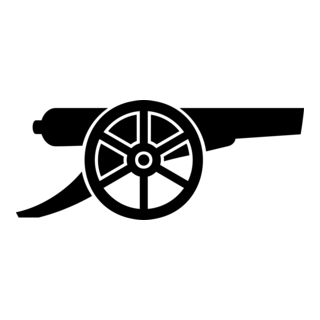
Bertram Mee
Date of birth: 25 December 1918
Date of death: 21 October 2001 (aged 82)
Place of birth: Highbury Vale, Nottingham, England
Nationality: English 🏴
Arsenal Managerial Career: 1966-1976
General Information
Bertie Mee (born March 25, 1925 – died October 10, 2001) was an English footballer, coach, and manager who is celebrated for leading Arsenal to one of the most remarkable periods in the club’s history. Initially a medical officer and physiotherapist for the club, Mee became Arsenal’s manager in 1966. Despite having little managerial experience, he guided the team to its first league and FA Cup Double in 1970–71, forever cementing his legacy in English football.
Early Life and Playing Career
Mee was born in Northwich, Cheshire, and grew up with a strong work ethic. During World War II, he served in the Royal Air Force, developing leadership and organizational skills that would later inform his managerial career. Following the war, Mee trained as a physiotherapist, combining his knowledge of medicine with a deep passion for football.
Although he played amateur football, Mee’s professional playing career was limited. Instead, he focused on helping players maintain fitness and recover from injury. His unique combination of medical expertise and football knowledge made him an invaluable member of the Arsenal backroom staff.
Arrival at Arsenal
Mee joined Arsenal in 1956 as a physiotherapist under manager Jack Crayston. Over the next decade, he became familiar with all aspects of the club, from player development to match preparation. His dedication and attention to detail impressed both players and directors.
In 1966, when Arsenal were struggling under Billy Wright, the board made the unusual decision to appoint Mee as first-team manager. Despite having no prior experience in top-flight management, he accepted the challenge. This decision would prove transformative for the club.
Arsenal Managerial Career
Mee’s early seasons were challenging. Arsenal were in a rebuilding phase, lacking both confidence and consistency. Mee focused on discipline, fitness, and defensive organization. He relied on experienced players while promoting young talents such as Charlie George, Ray Kennedy, and Frank McLintock.
His methods gradually bore fruit. Arsenal reached the 1969 League Cup final but lost to Swindon Town. Mee’s resilience and tactical adjustments, however, ensured the team kept improving. By the 1970–71 season, Arsenal were ready to make history.
The Historic Double
Under Mee, Arsenal won the First Division title and the FA Cup in 1971, achieving the club’s first-ever domestic double. The team combined disciplined defending with creative attacking play, showcasing the balance Mee instilled.
Highlights included Frank McLintock’s leadership in midfield, solid defensive performances from Bob McNab and Peter Storey, and the attacking flair of George and Kennedy. Mee’s calm management style allowed the players to perform with confidence, resilience, and tactical awareness.
Cup Success and Legacy Building
Mee continued to guide Arsenal to cup finals, winning the 1970 Inter-Cities Fairs Cup, the precursor to the UEFA Cup. This was Arsenal’s first European trophy and marked the club’s arrival on the continental stage.
Mee’s focus on youth development and tactical organization laid the foundation for future success. Even after he left the managerial role in 1976, the players and systems he established continued to influence Arsenal’s approach under subsequent managers such as Terry Neill and Don Howe.
Managerial Style
Mee’s approach emphasized discipline, physical fitness, and tactical awareness. He was calm under pressure and excelled at motivating players without resorting to authoritarian methods. Unlike many managers of the era, Mee combined technical expertise with a genuine understanding of players’ well-being, stemming from his medical background.
This holistic approach allowed him to manage both high-profile stars and young prospects effectively. His teams were organized defensively but were also capable of attacking flair, a balance that brought unprecedented success.
Challenges and Departure
Despite his achievements, Mee faced challenges toward the end of his tenure. Maintaining consistency in the league proved difficult, and player injuries occasionally hampered results. In 1976, Mee stepped down from the managerial role and returned to work with the board, continuing to support Arsenal in various capacities.
His departure marked the end of a groundbreaking era but left the club in a much stronger position than when he arrived.
Legacy
Bertie Mee’s legacy at Arsenal is monumental. He took an underperforming side and turned them into English champions, securing the club’s first league and FA Cup Double. His emphasis on discipline, fitness, tactical balance, and youth development shaped the future of Arsenal football.
Mee is remembered as a visionary manager who combined medical knowledge, coaching acumen, and exceptional leadership. Players respected his calm authority, and fans celebrate his achievements as foundational moments in Arsenal history.
| P | W | D | L | Win % |
| 403 | 182 | 112 | 109 | 45.2 |

